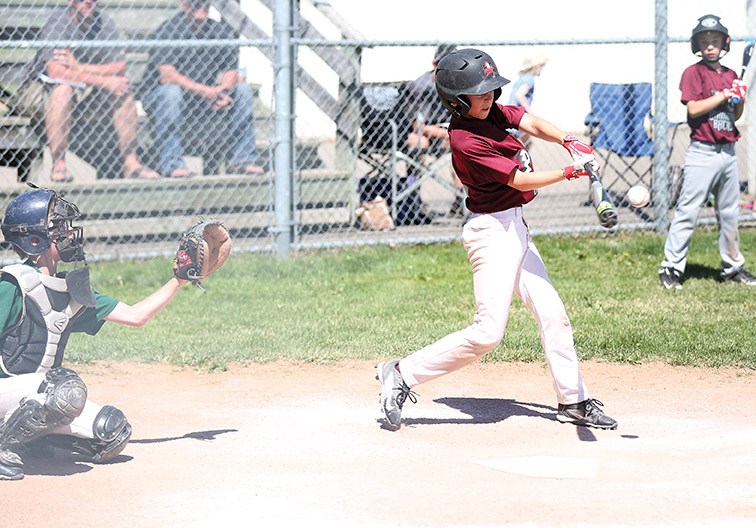The Prince George Youth Baseball Association is changing the way its smallest athletes play the game. When the season opens in spring, there will be much more action and much less standing around for the younger players.
The long-term plan is to develop a better baseball player, but the effect right away will be more of the things that make baseball fun: hitting, base-running and fielding.
The best part, according to PGYBA officials, is the proof of concept. For more than a decade a Manitoba baseball association has worked the bugs out of this innovative system. The Carillon Minor Baseball Association designed the pilot program, and saw their provincial medal count climb. Best of all, their enrollment numbers went up because word got around that the baseball kids were having big fun.
PGYBA board member Kyle Anderson came across the program during a presentation at the Baseball Canada Virtual Fall Meetings. The results were too good to ignore. The local board agreed, after teacher-coach Joe Flavel investigated deeper.
One of the key features is smaller teams – only six players – for the youngest couple of age brackets.
Other modifications focus on more hitting, running and fielding. There are different modifications for different age groups, but the upscaling affects those ages 11 and younger in some way or other.
It also reduces the criticisms baseball has sometimes faced in the past. In Prince George, you should no longer hear “my kid was just picking dandelions” or “it’s too slow to hold my kid’s attention.” This version of baseball has more action and more skill development all at the same time.
“My work is actually with physical literacy in elementary schools, which already has a lot of evidence and statistics showing the huge benefits of small-sided games for those ages, and that’s really what this is,” said Flavel.
The system was built on the fact that the little kids rarely hit the ball to the outfield, so six-player teams without outfielders would allow for the kids to get into more close-up game-action, especially with the hitting enhancements putting the ball into play more often.
Another innovation pertains to the 11U division where kids are introduced to pitching for the first time. Typically there are few strikes thrown and more wild pitches in that age bracket. Now, when the ump calls Ball 4, the 11U batters get to belt it off a tee, so walks become dynamic plays instead of eye-rolling boredom.
“These innovations allow players to grow up feeling the ball a lot more than before, experiencing all of the positions a lot more, getting in on a lot more hitting and fielding action, and learning the premium parts of the game in a natural-feeling way,” said Flavel. “The bottom line is, it’s a lot more fun.”
Flavel also found that the system “has a multiplier effect” in that skills get learned much more effectively because instead of doing drills in an isolated practice setting and then trying to translate the principles into game action, the games become the drills due to the concentrated play-making.
“When they learn by feeling the dynamics of the game as it unfolds, the skills lock in better, and they’re having a lot more fun at the same time,” Flavel said.
Another expected side-effect is an uptick in community involvement. The smaller rosters mean more teams have to be created, but volunteer coaches only have to manage six kids, at the youngest levels, so more are willing to help out. With more coaches involved, the other volunteer ranks are expected to also grow like work bees and organizing committees.
Registration for youth baseball closes on April 8. Register now at www.pgyba.com.



